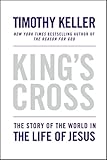A good article on the emotional intelligence of email at the 99% by Scott McDowell. Here’s the first part:
Earlier this year I attended a presentation with Daniel Goleman, author of Social Intelligence and godfather of the field of Emotional Intelligence. According to Goleman, there’s a negativity bias to email – at the neural level.
In other words, if an email’s content is neutral, we assume the tone is negative. In face-to-face conversation, the subject matter and its emotional content is enhanced by tone of voice, facial expressions, and nonverbal cues. Not so with digital communication.
Technology creates a vacuum that we humans fill with negative emotions by default, and digital emotions can escalate quickly (see: flame wars). The barrage of email can certainly fan the flames. In an effort to be productive and succinct, our communication may be perceived as clipped, sarcastic, or rude. Imagine the repercussions for creative collaboration.
He goes on to give six tips for making sure your email messages communicate the right tone.






